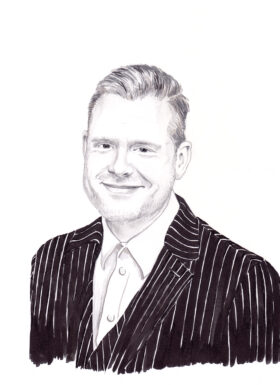-
Ammodo Science
Award for groundbreaking research2024 -
Ammodo Science Award
The Ammodo Science Award for groundbreaking research is intended to stimulate potentially groundbreaking research. Such research is usually the result of team work, and for that reason this Award is for research being carried out by a group of researchers working together, and is intended to recognise the contribution of every member of the group. The Award is presented every two years in four scientific domains: Biomedical Sciences, Humanities, Natural Sciences and Social Sciences.
-
Nomination & Selection
Each edition, the Ammodo Science Award for groundbreaking research includes a cash prize of 1,600,000 euros for each of the science domains Natural Sciences and Biomedical Sciences and a cash prize of 800,000 euros for each of the science domains Humanities and Social Sciences. The rectors of the fourteen Dutch universities affiliated to Universities of The Netherlands (UNL) may nominate a maximum of one research project per scientific domain.
-
Winners
The Ammodo Science Award for groundbreaking research focuses on potentially groundbreaking research and ensures that all researchers involved in the winning project are recognised and rewarded.
Daniël Lakens
Laureate Social Sciences 2023

Daniël Lakens (1980) studied psychology at Leiden University and works with the Human-Technology Interaction Group at Eindhoven University of Technology. In particular, he concentrates on improving how scientists in the social sciences use statistical methods, and in particular on the effect of changing reward structures in science.
Lakens helped the NWO run a pilot project exclusively funding replication studies, and he also worked on the first Registered Reports, a way of publishing that avoids publication bias. In 2017, he received a Vidi grant from NWO. He is a passionate lecturer and was awarded the Leamer-Rosenthal Prize for Open Social Science for his free online course ‘Improving Your Statistical Inferences’ that 66,000 students have so far enrolled in.
WebsiteResearch focus
Daniël Lakens studies how scientists conduct research, with the aim of increasing the reliability and efficiency of social science research.
Reflecting on the reliability of research
All conspiracy theorists notwithstanding, a great deal of faith is still placed in science today. Nevertheless, reliable research is not always a given. Even scientists sometimes consciously or unconsciously make methodological errors in, for example, their research design, or the way results are published.
That today we are more aware than ever of the challenges and problems of ensuring reliable research is partly due to the efforts of Daniël Lakens. As a pioneering meta-scientist Lakens studies how scientists conduct research. At the same time, he works on innovative solutions to increase the reliability and efficiency of social science research itself.
For instance, Lakens was involved in the early investigation of the so-called ‘replication crisis’ in psychology. For a large-scale replication project, 100 psychological experiments were carried out again, only to find that less than half led to the results from the original study. This finding had a huge impact worldwide in raising awareness that social science research is less repeatable than had been assumed which in turn has resulted in multiple disciplines starting to reflect on the reliability of their results.
Over the past decade, Lakens has published influential articles and developed (online) courses on reliable science, all of which are open source. Partly due to his empirical and theoretical analyses, there is now a greatly increased scientific awareness of the various problems involved in carrying out reliable research. For example, with regard to the selective publication of significant results (publication bias), utilising various analyses in search of significant data (p-hacking) and inadequate research design.
A characteristic of Laken’s research is that he not only raises problems, but at the same time actively contributes to the discovery of concrete solutions. For example, he developed best practices on, among other things, reporting and interpreting statistical effects and determining sample sizes for studies. Lakens also successfully determined how statistical techniques from other fields, such as medicine, can be applied in the social sciences. Both in the Netherlands and internationally, his solutions are quickly and extensively embraced by scientists.
Now that it is clear which mechanisms can get in the way of reliable research in individual studies, Lakens plans to focus increasingly on how scientists can work more collaboratively to come up with reliable answers. An example is the long-standing debate among scientists about whether or not the use of social media makes young people depressed. Lakens intends to explore how research processes work on such issues: how can researchers work together in a more coordinated way to answer complex research questions more efficiently and reliably?